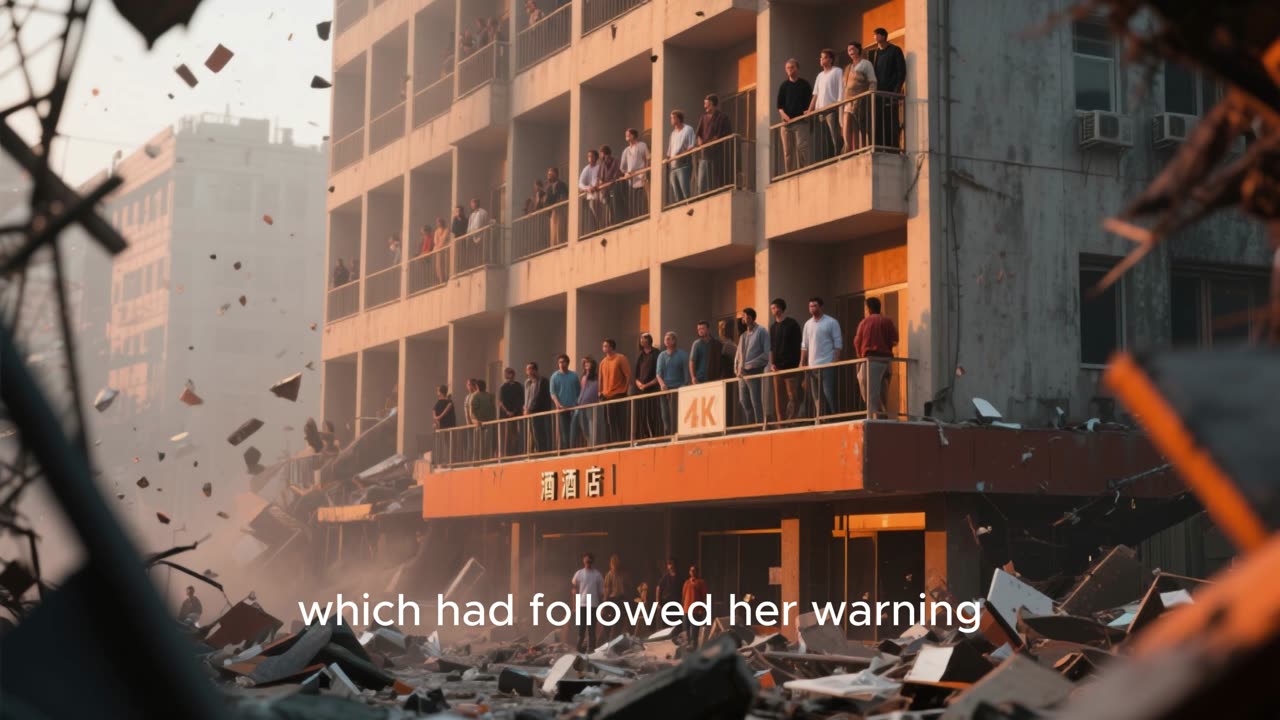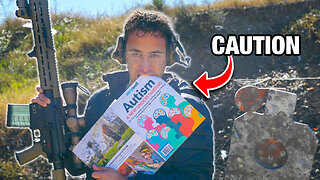Premium Only Content

Beneath the Black Wave
The Unbelievable Survival of Tilly Smith and the 2004 Tsunami
On the morning of December 26, 2004, the beaches of Phuket, Thailand, glistened in the sunlight. The waves rolled gently over the sand, the air was filled with laughter, and families from around the world enjoyed the warmth of a perfect holiday. Among them was a ten-year-old British girl named Tilly Smith, spending Christmas vacation with her parents and younger sister. She had no idea that within minutes, the ocean she was admiring would rise up and try to swallow the world.
A few weeks before the trip, Tilly’s geography teacher in England had shown her a video of the Indian Ocean Tsunami of 1946, explaining the warning signs — the strange retreat of the sea, the sudden silence before the wave, the wall of water that follows. That lesson would soon make her the difference between life and death for hundreds of people.
At 7:58 a.m., deep beneath the Indian Ocean near Sumatra, the earth tore itself apart. The third-largest earthquake ever recorded unleashed energy greater than a thousand atomic bombs, displacing an unimaginable volume of seawater. The wave it created raced outward faster than a jet plane, invisible until it neared the shores of eleven countries.
Two hours later, on the sands of Phuket, the tide began to behave strangely. The sea first pulled away from the beach, revealing shells and coral never seen before. Tourists wandered closer, taking pictures, laughing, unaware that they were walking into a trap. The air was eerily still, and the horizon darkened. Tilly watched it happen, and something deep inside her screamed that she knew what it meant. Her heart began to pound.
She turned to her mother and said, “Mum, I think there’s going to be a tsunami.” Her parents hesitated — it seemed impossible on such a calm day — but the fear in her eyes was unmistakable. She begged them to leave the beach, shouting the word again and again. When her father saw the sea pull back even farther, he realized she was right.
The family ran toward the hotel, warning everyone they passed. Tilly’s mother, understanding the urgency, shouted to the staff, “There’s going to be a tsunami! Get everyone off the beach!” The Thai workers trusted her, and within moments, they began ushering tourists inland. People ran, confused and terrified, as the roar of the approaching wave filled the air like the growl of a giant.
Then, the sea returned.
A wall of water taller than the palm trees crashed over the beach, smashing through buildings, cars, and boats. The ground shook with the force of its impact. But the area where Tilly and her family had been only minutes earlier was now empty — every single person had escaped to higher ground. The hotel, which had followed her warning, became one of the only places on that stretch of coast where no one died.
Elsewhere across the Indian Ocean, the destruction was almost beyond comprehension. More than 230,000 lives were lost in a single day. But in Phuket, a ten-year-old girl’s memory and courage saved hundreds.
When the news spread, reporters called her the “Angel of the Beach.” Scientists and rescue workers praised her quick thinking, and governments around the world began using her story in schools to teach children how to recognize the warning signs of natural disasters. Tilly never considered herself a hero. She said she only remembered what she had learned — and she was lucky that someone listened.
Years later, she returned to Thailand, visiting the same beach where she had once stood staring at the receding tide. The ocean looked peaceful again, but she said it always carried a whisper — a reminder that the world can change in seconds.
Her story became a symbol of the power of knowledge, of how a single lesson in a classroom can echo across the globe and save lives. In the face of something as unstoppable as nature, awareness became the most powerful tool of all.
That day, the sea took hundreds of thousands, but it spared hundreds because a ten-year-old child saw what others could not — and shouted loudly enough for the world to hear.
-
 20:52
20:52
Professor Nez
18 hours agoThe TRUTH is Actually WORSE than we Thought...
9.26K18 -
 8:59
8:59
MattMorseTV
17 hours ago $0.05 earnedTrump’s DIRE WARNING to the Senate GOP.
72.7K81 -
 2:13:33
2:13:33
Side Scrollers Podcast
19 hours agoAsmongold SUED for Emotional Distress + Hasan REJECTED+ INSANE Plane Crash + More | Side Scrollers
87.4K24 -
 21:39
21:39
Nikko Ortiz
4 days agoI Take A North Korean Shooting
79.8K11 -
 23:01
23:01
GritsGG
17 hours agoWarzone Solo Dubular! Last Night Time Solo???
13.6K2 -
 22:47
22:47
The Pascal Show
15 hours ago $0.04 earnedTHEY’RE HIDING EVIDENCE?! Candace Owens EXPOSES Foreign Connection In Charlie Kirk Shooting
22.2K25 -
 LIVE
LIVE
Lofi Girl
3 years agolofi hip hop radio 📚 - beats to relax/study to
283 watching -

FreshandFit
14 hours agoLas Vegas Takeover!
197K18 -
 2:19:29
2:19:29
Badlands Media
15 hours agoDevolution Power Hour Ep. 404
78.9K42 -
 6:02:58
6:02:58
Drew Hernandez
1 day agoGOP COOKED INTO DENIAL & 12 ISRAELI-LINKED PHONES DETECTED AT UVU DAY OF CK EXECUTION?
57.8K34